News from ETSON and its members*
27 Nov 2024 | GRS | 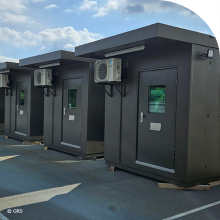
|
Physical protection of nuclear facilities in Ukraine - insights into the work of German-Ukrainian cooperation The Russian invasion is affecting the lives and safety of people in Ukraine on many levels. With the capture of the nuclear power plant sites at Chernobyl - which is now back under Ukrainian control - and Zaporizhia, nuclear facilities have also been included in the hostilities and have therefore increasingly become the focus of public attention. GRS has been in close professional contact with Ukrainian partner organisations for decades, whereby the security of the facilties, i.e. their physical protection, also plays a role. On behalf of the Federal Foreign Office, GRS is working with Ukrainian and national partners to implement specific measures that contribute to improving the security of the facilities there. |
27 Nov 2024 | Vuje | 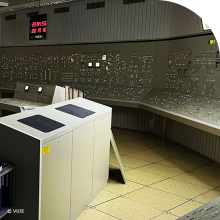
|
Severe accident management workplace delivery for Mochovce 1,2 full scope simulator VUJE delivered the severe accident management workplace for Mochovce 1,2 full scope simulator and continues in new simulation model integration. |
| 27 Nov 2024 | ENEA | The new Italian R&D Program for Nuclear Energy 2024-2026 A total amount of 135 M€ has been allocated for the years 2024-2026 by the Italian Ministry for the Environment and Energy Security to revamp the national R&D program in the nuclear field. Within nuclear fission R&D, the priority and focus topics are SMRs and AMRs. |
27 Nov 2024 | Vuje | 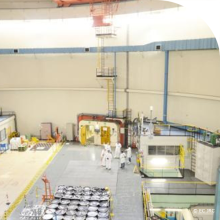
|
Decommissioning Project at JRC Ispra site In 2023 company VUJE together with Italian company DESPE (as a leader) was awarded by European Commission - Joint Research Centre in Ispra with the Contract for providing Decommissioning services and related supplies for the JRC Decommissioning & Waste Management Programme. |
10 Oct 2024 | ETSON | 
|
ETSON Side Event at the 68th IAEA General Conference As part of its longstanding cooperation with the International Atomic Energy Agency (IAEA), the European Technical Safety Organisation Network (ETSON) took the opportunity to hold a side event at the 68th IAEA General Conference which took place from September 16 to September 20 in Vienna, Austria. To inform and engage with representatives of the IAEA and its member states, ETSON President Jean-Christophe Niel (IRSN), ETSON Vice President Michel Van haesendonck and other experts of ETSON members highlighted recent and ongoing activities of the network. |
29 Aug 2024 | ETSON | 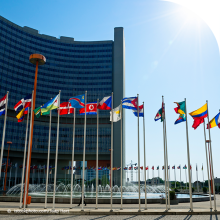
|
Renewal of Practical Agreement between ETSON and IAEA ETSON is delighted to announce that the Practical Agreement between ETSON and IAEA was renewed by an exchange of letters between ETSON’s President and IAEA’s Deputy Director General L. Evrard, until September 2027. |
22 Jul 2024 | ETSON | 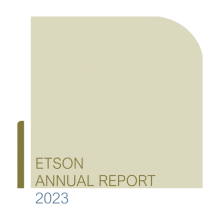
|
ETSON Annual Report 2023 has been published The year 2023 has seen various significant events that have undeniably influenced the nuclear field and impacted the ETSON activities, also on a global scale. Find out more about ETSON´s organisation, activities and external relations in 2023 in our annual report. |
08 Jul 2024 | ETSON | 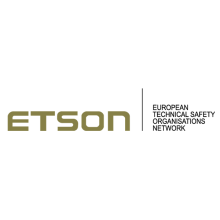
|
News from the latest ETSON Board and General Assembly meeting From June 12 to June 14, IRSN hosted meetings of the ETSON Board and the General Assembly in Cadarache, France. |
17 Jun 2024 | ETSON | 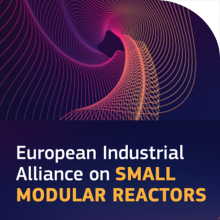
|
ETSON: an independent contributor to the European Industrial Alliance on Small Modular Reactors Over the past years, an increasing number of EU member states have expressed great interest in the development and deployment of small modular reactors (SMR) with a view to reduce their future CO2-emissions, in some cases including the allocation of specific programmes and budgets and even concrete plans for SMR build. |
22 Dec 2023 | GRS | 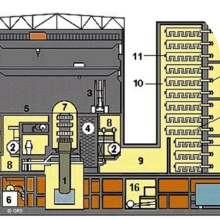
|
GRS research projects on nuclear safety in Ukraine: Simulations and scenarios of severe VVER reactor accidents More than 30 pressurised water reactors of the Russian or Soviet VVER (water-water-energy reactor) type are currently in operation in Eastern and Central Europe, and several new plants are under construction. Mochovce-3, for example, started commercial operation in Slovakia in October 2023. Not least the war in Ukraine and the fact that the Zaporizhzhya nuclear power plant (NPP) became the theatre of war have shown that technical knowledge about this type of plant is still needed in Germany too, e.g. to be able to assess any risks. Experts at GRS are therefore involved in numerous research projects on VVER reactors, including international ones. |
22 Dec 2023 | IRSN | 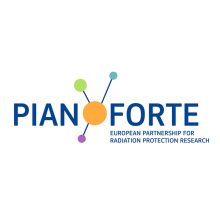
|
The PIANOFORTE partnership selects topics for its 1st call for proposals on radiation protection As part of EU research and innovation framework program Horizon Europe/EURATOM, the European research partnership PIANOFORTE aims to improve knowledge and promote innovation in the field of radiation protection on behalf of better protection of the public, patients, workers and the environment in all scenarios of exposure to ionizing radiation. |
22 Dec 2023 | Bel V | 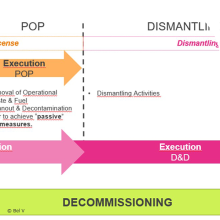
|
Full System Decontamination of the primary circuit at Doel 3 NPP: safety assessment by Bel V According to the law for nuclear phase out in Belgium, the third unit of the Doel NPP (referred to as “Doel 3”) was permanently shut down in September 2022 after 40 years of operation. Doel 3 entered in so-called Post Operational Phase (POP, see Figure 1), during which the licensee prepares notably its safe dismantling. |
22 Dec 2023 | IRSN | 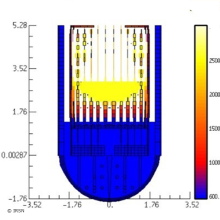
|
ASTEC extends its functionalities to additional types of nuclear facilities The Accident Source Term Evaluation Code (ASTEC) software system, developed by IRSN, simulates all phenomena occurring during a core meltdown accident in a water-cooled reactor, from the initiating event to the discharge of radioactive substances outside the containment. Version V3.1 of the ASTEC software, applicable to other nuclear facilities, is now available. |
22 Dec 2023 | PSI | 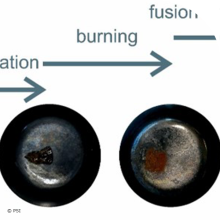
|
Forensics: Quantitative tracing of Silicon in CRUD Chalk River Unidentified Deposits (CRUD) are dissolved and suspended solids, product of the corrosion of structural elements in water circuits of nuclear reactors. The chemical composition of CRUD is variable as it depends on the composition of the reactor’s structural material, as well as the types of refueling cycles. Recent internal investigations have found unexpected but significant Si-amount in CRUD. The chemical composition of CRUD holds key information for an improved understanding of CRUD formation and possible impact in fuel reliability and contamination prevention. The standard analytical methods available in the hot laboratory did not allow an easy quantitative determination of the Si-amount in CRUD. A new innovative procedure has been developed and tested with synthetic CRUD name Syntcrud. The adapted flex-fusion digestion method presented here is able to provide reliable concentrations of several elements within CRUD, including Si, which was not possible in methods used previously for ICPMS measurement. |
30 Nov 2023 | ETSON | 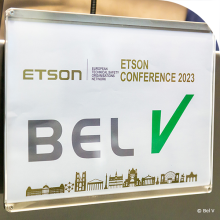
|
ETSON Conference 2023 An ETSON Conference was held on 11 and 12 October 2023 in Brussels, Belgium. Bel V hosted this 2023 edition. |
Pagination
Stay informed - subscribe to our newsletter.
Copyright · All rights reserved